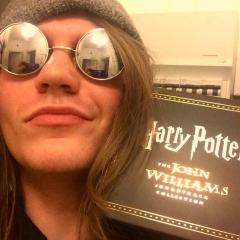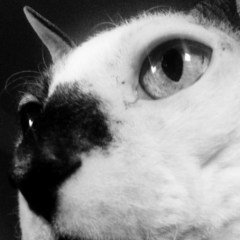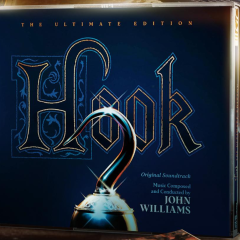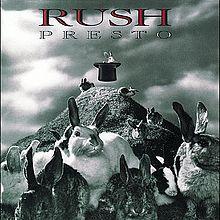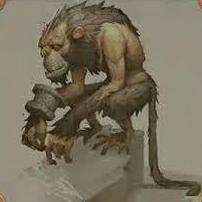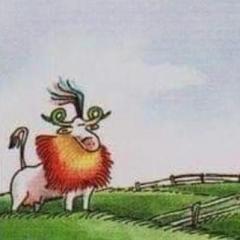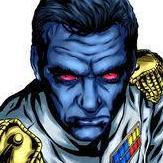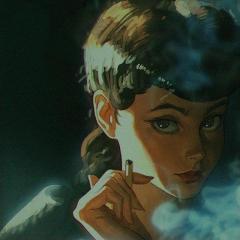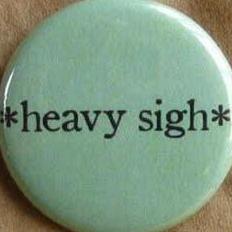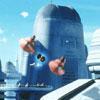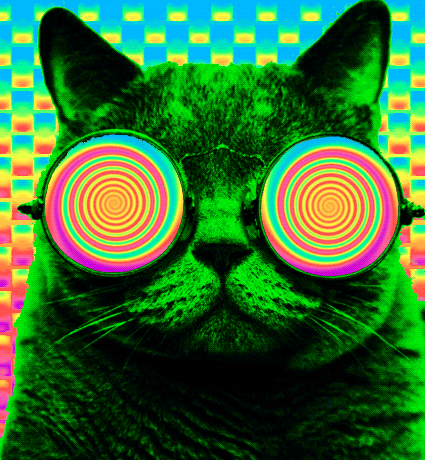-
Posts
10,549 -
Joined
-
Last visited
-
Days Won
11
Reputation Activity
-
 nightscape94 got a reaction from SteveMc in JJ Abrams on working with John Williams
nightscape94 got a reaction from SteveMc in JJ Abrams on working with John Williams
Those phonies probably all use pleather. Williams bands his together with the stretched hides of animals he's killed bare-handed.
-
 nightscape94 got a reaction from Once in Seven Years In Tibet (John Williams)
nightscape94 got a reaction from Once in Seven Years In Tibet (John Williams)
I listened to this quite frequently when it first came out, but like many scores, I shuffled it off to the side for a while. Still dig it out from time to time. The main concert suite is one of my favorites, filled with several wonderful themes.
The score also gave us that beautiful little melody that would fleshed out even more achingly in his Elegy.
-
 nightscape94 got a reaction from bruce marshall in Alfonso Cuarón's Gravity
nightscape94 got a reaction from bruce marshall in Alfonso Cuarón's Gravity
My only real issue with the score, which went largely unnoticed by me except for the debris field scene, was the ending. It was a bit much and overwrought. It seemed out of place.
-
 nightscape94 got a reaction from Tom Guernsey in The Gerhardt Star Wars Recordings
nightscape94 got a reaction from Tom Guernsey in The Gerhardt Star Wars Recordings
Gerhardt's 21 minute Close Encounters suite is unrivaled. This should have become the standard performance version.
-
 nightscape94 got a reaction from Loert in The Gerhardt Star Wars Recordings
nightscape94 got a reaction from Loert in The Gerhardt Star Wars Recordings
Gerhardt's 21 minute Close Encounters suite is unrivaled. This should have become the standard performance version.
-
 nightscape94 got a reaction from Jay in The Hayao Miyazaki Retrospective Thread
nightscape94 got a reaction from Jay in The Hayao Miyazaki Retrospective Thread
Ponyo on the Cliff (2008)
Or, how Miyazaki Got His Groove Back. Artistically, it's a departure from his most recent work. The opening scenes are intentionally exaggerated and loose, appearing more cartoonish, with their designs not trying to resemble a reality consistent with the outside world. This works especially well with the underwater setting but it took a bit getting used to. Oddly, something more realistic would have felt less believable since there is an immediate feeling that is geared toward a young audience, inviting you in and instantly heightens the sense of curiosity. Even the first frame looks more like an impressionistic painting, and then we are absorbed by the vast ocean, passing a myriad jellyfish and other brilliant aquatic life as we catch a glimpse of an unknown man working magic, creating new sea life. Ponyo is a simple story directed at children about the likewise-named little fish girl who aims to become a human after finding a warm and common bond with a boy named Sosuke. The essential conceit is not an original idea by any stretch, but handled here by Miyazaki and his team, he makes a mostly joyful and interesting movie that avoids being entirely masterful due to some contradictory plot elements. Still, the result is quite pleasant, and a nice rebound after Howl's Moving Castle. I found the moments between the two children so infinitely watchable that it almost independently makes up for a murky story otherwise.
Miyazaki does wonders with silence, and here again we have a scene where so much is said without saying anything. The entire beginning section gives us a confident impression of a young fish surreptitiously escaping her father's home-bound prison, where even in her basic design with limited facial range, we can see her anticipated delight of an unknowable adventure.
There are some interesting themes at work here. Most notably, at its center there is the father, Fujimoto, who continually works to exert power over his child, triggering several scenes where he attempts control her direction, her dreams, and defines what he believes are "innocent and pure" characteristics. This is the parent's viewpoint about what it means to be a perfect child in their own mind instead of thinking of what the idea means to the child; the need to project their desires onto the child instead of letting them naturally become their own person though their own decision-making. There is an idea of accepting for who you are and to greet and build relationships with those who we perceive as different by not thinking of those differences as roadblocks or some type of prejudicial obstruction. Children, more often than adults, tend to overlook things that myopic adults miss or dismiss after a lifetime of conditioning and jaded worldviews. When I watched it the first time I thought Miyazaki made a mistake in making the children so young. After all, Sosuke is only 5, yet either ventures off entirely on his own, or is left alone several times. Then there is the ever-important idea of Love (there it is again!) between Sosuke and Ponyo. But this should be understood more as the love a child has for their parent or for a friend, which is innocent and pure, stripped out outward complexities, just like Fujimoto demanded of his daughter. With the obsessiveness that he exhibits in his life, the distractions that he's brought on himself, it didn't occur to him that that Ponyo could maintain this type love while still being someone different than what he envisioned. This general idea was more effective during my second watch.
Even the Nature theme makes an appearance with several scenes, some more subtle than others, but none of them obtrusive or distracting. It actually feeds directly into Fujimoto's goals, which I'll get into later. In fact, it's telling that the way Sosuke meets Ponyo is by saving her from being stuck in a discarded open glass container. As he hesitantly approaches her, the surround rocky bank is also littered with trash. After he cuts his thumb by breaking the jar open, Ponyo licks the wound closed through her magic. The taste of blood affects her DNA which starts the process of transforming her into a human. I would be interested in knowing the further metaphorical implications, if any, meant by Miyazaki here since there is a buried concept of becoming something on merit, by assuming its qualities, and through a willful internal acceptance and, additionally, external acknowledgement; that we're not strictly tied to our biology. In a sense it expands on his previous Nature theme by taking it beyond just our surroundings, and brings it to a more intimate setting. However, ultimately, it's more or less a setup to tell a simple parable. Anything beyond that could be an interesting discussion, regardless of whether it was conceived that way.
I feel I have to discuss the story, because there's an actual plot in here, it's just underachieving with how it's told. When I watched the Japanese version first, Fujimoto's motivations were confusing. The way I understood it, over time he had amassed elixirs representing different oceanic decades and even stretching back several Periods containing ancient creatures. In one scene he concurrently expresses regret by saying "I almost upset Nature's balance" and then immediately spells out his goal of wiping out humankind so he can usher in a new era of dominant sea life in a worldwide ocean by distilling the tides so it swallows the earth. Ponyo spoils this plan by prematurely filling the elixir well with seawater, causing it to spill over and start a chain reaction much earlier than intended. As such, it prevents widespread catastrophe but provokes a massive localized tsunami. After the shipping ports swell and flood the entire area the story from Fujimoto's viewpoint shifts to his concern for Ponyo, and her wish to become human. When he meets his wife, Gran Mamare, the Goddess of Mercy and the ocean, he again expresses fear of upsetting the balance of the world even though he was very clearly working to unbalance it. I'm not sure if this contraction is intentional or just poorly formed, but it's never clarified. Also, the moon approaching the earth isn't mentioned explicitly until close the end, and even then it's not explained. In the English language version, it's fleshed out better during that same scene with Gran Mamare, when Fujimoto offers an explanation that Ponyo's actions have influenced reality itself, and that the Earth's gravitational pull is drawing the moon closer. This is all tied to Ponyo because she cannot exist as both a human and a child of magic. This doesn't resolve the opposing conflict of Fujimoto's initial plan, or his actions, but it helps understand the basic story, but it very well could be a subtitling issue. Secondly, it's possible that his later regret was triggered by his sudden understanding of Ponyo's care for humans, her ability to see their goodness, as well as her ability to detect their sincere and strong love for family and the strength we feel in solidarity and community, but this is in no way clear. I feel like I'm forcing an explanation so it makes sense. In some way it felt like the movie got so caught up in the magic of the characters and situation and lovely scenes between Ponyo and Sosuke that it forgot to tell a coherent story. In this way, I would actually recommend the English language version more, my first such recommendation since My Neighbor Totoro. The scripting otherwise doesn't change many important details, though you do lose cultural quirks like Sosuke calling his parents by their first names.
It might have been interesting to see Fujimoto be more of a major player given his ambitions, and to actually see him be on the verge of realizing his dream, only to have Gran Mamare set things right, taking a more active role, teaching a lesson, while also assuming the Blue Fairy role in this broad Pinocchio-esque story.
Some odds and ends: The Tsunami sequence is extremely powerful, simultaneously depicting the terrifying and awesome display of devastation while also containing a lot of energy with Ponyo bouncing from one wave to the next as she tails Sosuke with uninhibited and gleaming joy, desperately seeking to be reunited with him and his green pail. Joe Hisaishi's music channels Ravel to an obvious degree, especially in the oceanic moments, but that is not a criticism. It seems very intentional. The music supports and strengthens all of the varying elements and ties it all together nicely. The traditional orchestra helps to ground us, as is usually case with his later collaborative efforts with Miyazaki. I also very much liked the detail of Ponyo reverting back to more of a fish form, even partially, when she has to use magic. If I had the opportunity to remove one, just one, thing from the film it would be the strange fascination with Lisa's driving ability, or lack thereof. Actually, at one point, she appears to foolishly risk both her and her son's safety when she disregards the crossing guard's advice as a massive wave and ship freighter threatens the throughway.
Ponyo is a brightly colored project that is filled with youthful exuberance which made me smile constantly. It gets tangled in some of the uneven storytelling snares that Miyazaki can sometimes get tripped up on, but it stretches its legs across the finish line with conviction. Ponyo, the character, is confident and strong-willed in the face of adversity, even more important when that opposition is a parent. She heedlessly seeks out her dreams, knows exactly what she wants, and teaches us to pursue those endeavors to the very full extent of our being. On the journey of discovering yourself, you may just help push others to discover themselves along the way.
1) Spirited Away
2) Princess Mononoke
3) Laputa: Castle in the Sky
4) My Neighbor Totoro
5) Nausicaä of the Valley of the Wind
6) Ponyo on the Cliff
7) Kiki's Delivery Service
8) Lupin III: The Castle of Cagliostro
9) Howl's Moving Castle
10) Porco Roso
-
 nightscape94 got a reaction from Jay in The Hayao Miyazaki Retrospective Thread
nightscape94 got a reaction from Jay in The Hayao Miyazaki Retrospective Thread
It's a bit of a shame, really. This is, at its core, a love story. There is a great movie to be salvaged from this material, but the story's natural inclination is toward the romantic. In my opinion, you build the entire movie around that bud and let it bloom.
You have a female lead who is insecure about her looks whose career revolves around making hats designed to accentuate beauty in other people, the thing she doesn't see in herself. There's something psychologically interesting about that. Then you have Howl, a vain man who is obsessed with true beauty after being tricked by a witch, but he still has a moral compass, and is still very kind and considerate. The stage is set between them. They both have an emptiness and the whole story should be about filling that emptiness with the love they eventually find for each other. It feels right for this to have been a slow burn. Howl quite literally gets his heart back at the end, given to him by Sophie. If Howl was less allusive, perhaps made clearer over time through his interactions with Sophie, maybe reinforce the subplot with the missing Prince, create a more static antagonist with the Witch of the Waste still yearning for his heart, then you might have something. There are way too many subtle parts to have not meticulously planned the details in the dialogue and structure.
Part of the genius here is The Witch of the Waste, who was an old woman pretending to be young to seduce Howl, puts Sophie in the exact opposite position, which is to take a young woman and make her old so she appears less desirable. It's the witch's way of creating the absolute insult, but it doesn't have the result she was hoping for. After all, beauty is more than your age and looks. Howl is able to see through to the beauty of Sophie's heart and spirit right away, and is never once convinced otherwise.
It sounds like I'm being much harder on this film than needed. It's actually not a bad movie, but it's that squandered potential for the same greatness that Miyazaki has offered so many times before that makes me judge it a bit harsher.
And to think that if I had stuck to my original plan of reviewing one film every two weeks I would have finished a year ago. In a weird way I feel like I'm savoring the experience more by living with it for so long. It'll be a sad day when I have no other Miyazaki films to watch and review. I'll have to move onto other Ghibli films, as suggested by filmmusic, like Grave of the Fireflies, and films I haven't seen like Only Yesterday, When Marnie Was There, Arrietty, The Tale of the Princess Kaguya, etc.
-
 nightscape94 got a reaction from Jay in The Hayao Miyazaki Retrospective Thread
nightscape94 got a reaction from Jay in The Hayao Miyazaki Retrospective Thread
Howl's Moving Castle (2004)
Interestingly, in my previous review, I had mused what it might've been like if Miyazaki tired to tackle a more traditional love story. I suppose Howl's Moving Castle is the answer to that question, but now having asked for it, I only wish he had supplied us with a more satisfying response.
One of the pleasures of any Miyazaki film is that when you enter any of his worlds, you don't immediately know what the rules are. The opening is nicely done, where we see the titular moving castle lumbering along a sloping country side. We then see a young woman named Sophie busy at work in a shop, looking concentrated while sewing ornaments onto a hat, but there is a twinge of sadness in her face. We realize quickly that this is a land filled with political unrest with soldier's lining the streets and military parades gathering onlookers and supporters. Sophie avoids the hustle and bustle of this flashy show and is confronted with what is probably the scariest thing in the film. Two soldiers accost her in the back alley where she is on her way to meet her sister. They aggressively and suggestively stop her and eye her up. A mysterious man moves in and uses a spell to send them away, and he inexplicably says to Sophie, "they're harmless". Well, they didn't look harmless. When this was played off in such a joking fashion it made me uncomfortable. When the two of them are attacked by globule creatures they launch upward together and walk across the air. When Sophie finally sees her sister, their conversation solidifies what we guessed, which is that they inhabit a world full of magic and sorcery, witches and wizards.
After nice setup, once Howl's character arrives it never really recovers a strong foothold with the story. Howl's Moving Castle is plagued with pacing issues, wrong turns, and characters that could be interesting that plod along uninterestingly. There are pieces here that work, a love story that could have been successfully pulled off, but when you put the available pieces together they do not form a coherent picture. The Witch of the Waste's motivation is to capture the heart of Howl, whom she loves. When she sees him with Sophie, she goes after him through her. As such, the witch casts a cruel spell turning Sophie's appearance into that of an elderly woman. Sophie never thought of herself as beautiful and lacked confidence in her appearance. This spell has the reverse affect and acts as a catalyst to gain confidence since it removes her outward appearance from the equation. As for the castle itself, it is creativity assembled, fun, containing a magical door that offers entrances to various ports throughout the kingdom. It's one of the very best things about the movie. Markl's presence is never explained or even touched on except we get the idea that he's some sort of apprentice, but I found him perplexing and not adding much to the story.
As everything unfolds, we see the war torn world but it's not particularly integrated into the story well, especially considering how utterly important it is to the plot and to the development of Howl's character. The outline of this conflict should have been much better defined since it plays such a vital role in his actions. I didn't feel any real connection to the issues that faced the country or its people, or why the war was being waged to begin with. While it didn't feel out of place it was mostly underdeveloped as a legitimate concern that deserved our attention. The overall story should have been tighter. For someone like Miyazaki who understands so well the importance of world-building, and has done so before effortlessly, this is a rare failure on his part to stitch the sections neatly side by side for a balanced and effective story.
Aside from the castle, the actual best thing about the movie is Sophie's aging being influenced depending on her mood. It's something you might not catch right away, but when you do it's really effective. There is one scene, when Howl creates a larger room to accommodate his growing family, and he's replicated Sophie's hat shop, where she actually gets slightly younger with just a turn of the head in the same animated movement. This is one of the better stretches of the movie where he proceeds to show her a flower-enriched lakeside meadow. I had the growing desire to see more of this type of enchantment. However, with so little of this to go around, I never really bought her growing love for Howl and by the time she blurts out her declaration of love it wasn't nearly as impactful as it could have been.
While it's normal for his films to have nontraditional villains, the source of conflict here is still all over the map. And although it's also normal to have even nontraditional conflicts in his movies, this story of "love interrupted" begged for one to be better established. The Witch of the Waste seemed like the perfect foil; an old witch who tricked a young wizard into her heart but got away. That set up turned out to be a dud. Then we meet Suliman, Howl's old teacher, and the King's royal sorcerer, and you think maybe she'll come back as a serious force later, but doesn't. Then you start thinking the King, who we meet once, will somehow materialize as something more threatening to be reckoned with, since he's responsible for one of the warring sides, but doesn't. Even the armed forces are seen obscured at a distance and are nothing more than a background conflict in order to put our main characters at an inconvenience. The story strolls along in a jerky zig zag pattern and we never get to settle into a comfortable rhythm. This could have been resolved a bit with the Scarecrow character, whose ending felt tacked on and sudden. If they had set up that the war was started because the Prince was missing or one side accused the other of kidnapping, then these events would have had more weight and it would have made the twist that he was the Scarecrow all along that more effective. Instead it was a random miscalculated reveal, and when Madame Suliman sees our hero's happy ending and requests a conference with the King to "put an end to this foolish war", I didn't really care. This was a far too violent and wide-ranging war to come to such a screeching and grindingly peaceful resolution for what are non-perceived or earned reasons.
Howl's Moving Castle feels like it's being pulled in several conflicting directions at once, while not taking the time to look far enough down any of those roads. This is where Miyazaki's habit of not planning his stories in advance comes back to bite him, which is all the more baffling since it's based on published source material. This smacks of ill-planning. While not an entirely lifeless endeavor, and even though there are qualities to savor, this was a big step backward.
1) Spirited Away
2) Princess Mononoke
3) Laputa: Castle in the Sky
4) My Neighbor Totoro
5) Nausicaä of the Valley of the Wind
6) Kiki's Delivery Service
7) Lupin III: The Castle of Cagliostro
8) Howl's Moving Castle
9) Porco Roso
-
 nightscape94 got a reaction from Jay in The Hayao Miyazaki Retrospective Thread
nightscape94 got a reaction from Jay in The Hayao Miyazaki Retrospective Thread
Addendum:
I didn't want to clog up my love letter to Spirited Away with anything sour, so I'll just add a couple of remarks here on the dub.
Overall, I don't have any serious qualms with it, and it's pretty well done in terms of acting. There isn't much in the script to truly mess up. I've noticed that the more problematic translations tend to be the more story-heavy ones, such as Princess Mononoke or Castle in the Sky, when actual plot is involved. This movie is more about a streamlined experience, much like My Neighbor Totoro, which is probably why that dub is extremely well done, and my actual preferred version of that movie. That's something that I don't anticipate will be replicated, but I'm always open to possibilities. The problems here have more to do with filling in empty space that doesn't need to be filled because the dub supervisors seem to be scared the audience won't get certain things if they're not spelled out. For Spirited Away there is one very poor decision, and a couple of missteps:
The timing of the realization that Haku is the dragon. This is one of the few moments where the way in which the information is doled out plays an integral part in how we enjoy the story. As I more or less outlined above, in the Japanese version there is a nice eventual realization that takes place over several scenes. After meeting Haku on the bridge early in the morning, where he then takes Sen to see her parents, they part ways. Then something catches her eye in the sky, and she sees a flying dragon snaking away in the distance. There is no one to speak to, so she doesn't speak, and we see it play out on the curious expression on her face. Even later there is hesitation when she see the dragon again, but finally she just knows. This is a wonderful way to arrive to this recognition, and the audience shares in this "ah ha" moment. In the English dub, after parting from Haku on the bridge, she literally says, in all of its clumsy and insensitive glory, "Haku? I didn't know he was a dragon." Firstly, it inserts voicing where there is none (it's spoken over the shot of the sky) but it hammers the information at us right away without any tact. This drastically lessens the second scene since the surprise is ruined.
The dialogue during the flying scene is altered pretty heavily to be more explicit in Haku being a river spirit and wrapping things up about him being a good person, as though we didn't quite get the point. I know that English speaking audiences, especially American audiences (this dub was supervised by Disney), culturally don't have the same ingrained understanding of spirits, but I would like to see them give our youth more of a fighting chance. Children understand quite a lot without parents having to explain it. Miyazaki isn't exactly a nebulous storyteller, he's generally direct with his meaning and dialogue. The absence of people speaking is highly effective when the screen is already so busy, and he knows when, why, and how to use it in particular places. To willfully taint this designed mood for the sake of adding a verbal crutch is insulting.
At the very end, the same thing. As the car drives away, silence. In the English dub, not only is there more dialogue, but it's there to further supplement the theme of Chihiro's growth when it's not needed.
-
 nightscape94 got a reaction from Jay in The Hayao Miyazaki Retrospective Thread
nightscape94 got a reaction from Jay in The Hayao Miyazaki Retrospective Thread
Spirited Away (2001)
Spirited Away is, simply put, a transcendent film experience from beginning to end. When I saw it for the first time in 2002 I thought it was one of the greatest things I'd ever seen. Re-watching it again this week has solidified that opinion. Every scene works, there is no waste. I love every frame. It uses silence so effectively that it becomes meditative in a few spots and you get enveloped within its borders. The lead character, Chihiro, convinces you to go on this journey of discovery, and you couldn't be happier to allow this world to unfold around you. Aesthetically, it's one of the most colorful, vibrant, inventive, and imaginative films in existence. If Princess Mononoke is a masterpiece then this is Miyazaki's magnum opus. It's common territory for a Miyazaki film to contain an amazing amount of small detail threaded throughout, and Spirited Away has some of the best facial acting I've seen in an animated film. My admiration can be summed up by describing one particular moment. Chihiro is gathering her shoes, puts them on without socks, struggles briefly with one of the heals, and then taps the top of the other shoe against the wooden floor a couple of times to hammer it on, just like anyone might do unconsciously, since that's just how people are. It's a glorious detail, reflecting accurate behavior. This is all the more amazing when you realize that there is just a basic framework for a story, but it's all in the delivery and artistry on display. You get so caught up in watching it, actually watching it, that you lose yourself. Miyazaki doesn't reinvent himself as much as he simply intensifies the mystical and abstract elements which makes this still feel fresh, even given what's come before.
The structure is very basic, with a straightforward opening sequence that places a young girl named Chihiro in a car with her parents as they make their way to their new home and town. After a wrong turn puts them on course through an old windy and abandoned road, they arrive at the mouth of a mysterious tunnel where they then find themselves traipsing around a bankrupt and seemingly deserted amusement park. This beginning is important because in such a brief time span it tells us all we need to know about Chihiro, showing how nervous and anxious she is, constantly clutching at the shirt or arm of her mother and father. This is an interesting inverse of what her parents seem to be like, as they show a youthful eagerness to explore the unknown. Within just a handful of minutes we already find ourselves in a spirit world that Chihiro is forced to confront and navigate.
She encounters a young boy named Haku who immediately comes to her aid, giving her some quick advice. He feels drawn to her somehow, but this isn't explored any further until the very end when they're history comes full circle. We are very much introduced to this world the same way that Chihiro is, which is through a bombardment of sensory experiences where nothing is immediately explained. It's supposed to be jarring as Chihiro tries to manage this overload of new information. In continuation of this, we are introduced to several major players very shortly, such as the boilerman Kamaji, a bathhouse attendant named Lin, and the proprietor the business, who is also a powerful witch, named Yubaba, who controls the town. When Chihiro meets this witch it to save her own life by obtaining work in her bathhouse. Through insistence, charm, and a bit of luck, she is able to successfully procure a position, but not without Yubaba changing Chihiro's name by removing some of the kanji lettering to form the name Sen. It's a means of control and Yubaba's calculating plan is to have ownership over her workers where she rules through fear, making them unquestioning slaves afraid to move beyond.
Haku's past and present are not clearly defined. We know enough to place doubt in our minds about the integrity of his character; being the henchman and apprentice to Yubaba, he goes around stealing other's magic in order to gain power. The movie is told purely through Chihiro/Sen's eyes. The world is so new and confusing, and she's thrust into it so violently, with everything being taken from her, that she doesn't so much adapt to her new environment as skirt through it delicately maintaining a strong desire to escape. As a result, certain aspects of this world float by her rapidly without her having much time to question it, like when she sees what appears to be a dragon drifting through a blue sky shortly after an early morning meeting with Haku. She looks upon this in quiet wonderment, internalizing and tucking away her thoughts. Haku himself is a mysterious figure, just as inexplicable as his surroundings. His intentions turn out to not be as malicious as the company he kept when we find out he too was being controlled by Yubaba, and he was exercising a way to escape as well.
Lin, Sen's caretaker at the bathhouse, even expresses her dreams of going to a far off place. She is a great character, full of sarcasm, humor, attitude, bite, while being motherly toward Sen.
Miyazaki films have all have Love as an important component. Not always romantic, sometimes familial or bonds of friendship, but love as a concept is as essential to his storytelling as anything else. He's just never been explicit or overt in his use of the idea. It's always an innocent but indispensable ingredient. In Spirited Away, Love is played up more than in any of his other films, and the connection between Sen and Haku is established bit by bit, showing they have a shared past, even if neither can quite remember it. Their love for each other breaks Yubaba's spell, redeems Haku, and gives Sen the confidence to get through it all. It would be interesting if Miyazaki ever embarked on a candid romance just to see what that would look like through the lens of this gifted man.
The Bathhouse itself is a character. It's hard to completely dismiss what a setting like that represents historically. Even more, the character of No Face is the most mysterious because we don't initially know its motivations after noticing Sen on the bridge, later following her to the bathhouse, then drawing attention to itself by flaunting gold in order to showoff its mighty stature, and at the height of its arrogance forcefully and threateningly demanding the presence of Sen. There is a steady escalation in its behavior. This is the brilliance of Miyazaki by putting what constitutes very adult themes in what is a movie basically aimed at a younger audience. After cleverly leading it outside, when Sen tells Lin that the bathhouse is driving No Face crazy you can't help but understand that an environment that is so testosterone-fueled would have a negative affect on its once-relaxed nature. Even though the spirits appear sexless, everyone and everything is contaminated by what is unmistakably an unchecked male-centric atmosphere serviced by female attendants. No Face is corrupted, and Sen is utilized here as the purifying spirit. She has an indirect but positive influence on everyone and her sense of right and wrong is very strong and focused. The idea that No Face was capable of these things is right on point.
Preceding this is a set piece involving a spirit covered in sludge and foulness. This is a well-constructed and nicely animated series of events where we find out it's actually a river spirit that has been infected by human vileness and garbage. This is actually an extremely important piece of information from a design standpoint. When we see the newly cleansed spirit it intentionally reminds us the dragon that Sen saw a passing glimpse of earlier. This sequence now establishes what a river spirit, in their true and pure form, can look like. It subtlety implants that idea in our minds so when the flying dragon returns, Sen is at first skeptical about what she is seeing, but then intuitively makes the connection and understands that it's Haku without further debate. When we see his green eyes, we know for sure. This comes back nicely in the end when Sen remembers Haku's name, and he finally reaffirms his identity.
Unlike My Neighbor Totoro, there is no question that these events really happened since, not only does Chihiro still have her handmade and friend-fashioned new hair tie, but the entrance to the tunnel is completely overgrown with grass and weeds. Significant time has clearly passed. In a way, it would have been interesting to see what came next, but the story here is finished, and nothing more needs to be said.
There are two scenes I'd like to mention that are absolute treasures. The first one comes after we meet Yubaba's twin sister Zeniba and Sen removes her stolen seal from Haku's stomach. After confronting No Face and purging him of impurity of spirit, they meet up on better terms in the calmness of daylight and both board a train in order to visit with Zeniba and beg forgiveness on Haku's behalf. This whole section of them traveling through the flooded rail line brought me close to tears. There is a beauty and haunting sadness as it rolls along to the sound of gentle music with day changing over to night. Without a single spoken word, both Sen and No Face sit quietly next to each other as other ghostly spirits depart one stop at a time until they are alone, awaiting their own inevitable stop. It's difficult to put into words how affecting this is, and it's hands down one of the best scenes in any Miyazaki film. The other scene occurs shortly after and is the very summit of this breathtaking film as Sen and Haku embark on one of the most magnificent flying sequences in cinema, accompanied by one of my favorite musical cues ever. It's exhilarating, liberating, rapturous in its vision and realization, bringing the thematic material of the story to its destination, which is the importance of knowing more about yourself and to expose those locked away secrets of our personalities that we're sometimes too afraid to confront; the truths about ourselves as we grow into adulthood. At least for now, in this brief moment, there is simplicity and enchantment as they fly onward through the sky, hand in hand, together.
1) Spirited Away
2) Princess Mononoke
3) Laputa: Castle in the Sky
4) My Neighbor Totoro
5) Nausicaä of the Valley of the Wind
6) Kiki's Delivery Service
7) Lupin III: The Castle of Cagliostro
8) Porco Roso
Post #10,000
-
 nightscape94 got a reaction from Erik Woods in The Gerhardt Star Wars Recordings
nightscape94 got a reaction from Erik Woods in The Gerhardt Star Wars Recordings
Gerhardt's 21 minute Close Encounters suite is unrivaled. This should have become the standard performance version.
-
 nightscape94 got a reaction from 1977 in The Gerhardt Star Wars Recordings
nightscape94 got a reaction from 1977 in The Gerhardt Star Wars Recordings
Gerhardt's 21 minute Close Encounters suite is unrivaled. This should have become the standard performance version.
-
 nightscape94 got a reaction from Naïve Old Fart in The Official "A.I. Artificial Intelligence" Appreciation Thread
nightscape94 got a reaction from Naïve Old Fart in The Official "A.I. Artificial Intelligence" Appreciation Thread
I'm referring to the "Classical" concert hall. It would make a nice concert piece:
Korngold - Violin Concerto in D major
Williams - "Stored Memories", tone poem for Orchestra (based on A.I. Artificial Intelligence, motion picture)
Intermission
Rautavaara - Symphony No. 7, 'Angel of Light'
-
 nightscape94 got a reaction from SingeMoisi in Favorite short musical moments in Williams scores?
nightscape94 got a reaction from SingeMoisi in Favorite short musical moments in Williams scores?
Love the versions of the Force theme and Yoda's theme during this stretch and the fluid connection between the two. The underlying rapid strings strike again. Flawless.
10:58 - 11:28
-
 nightscape94 got a reaction from SingeMoisi in Favorite short musical moments in Williams scores?
nightscape94 got a reaction from SingeMoisi in Favorite short musical moments in Williams scores?
In the Escape from Cloud City cue, two moments close together.
This Shostakovich-eque moment from 2:05 - 2:13
And this pure awesomeness from 2:24 - 2:47
-
 nightscape94 got a reaction from The Illustrious Jerry in RAIDERS OF THE LOST ARK - Live to Projection Concerts
nightscape94 got a reaction from The Illustrious Jerry in RAIDERS OF THE LOST ARK - Live to Projection Concerts
Getting ready in Philly
-
 nightscape94 got a reaction from bollemanneke in Will John Williams be remembered mainstream in 2100?
nightscape94 got a reaction from bollemanneke in Will John Williams be remembered mainstream in 2100?
It's definitely going to be different when he never puts out another soundtrack or concert work. What a depressing day that will be. Much of what keeps people talking is that he's still around and putting out music. Once we're left to ourselves discussing the same pieces over and over, it will be so redundant...
Tim
-
 nightscape94 got a reaction from Mitth'raw'nuorodo in Favorite short musical moments in Williams scores?
nightscape94 got a reaction from Mitth'raw'nuorodo in Favorite short musical moments in Williams scores?
1:41 - 2:09
We've all heard the Star Wars "theme" and the concert suite so many times that I think it can be easy to forget how wonderfully effective Williams' scoring is in the moments immediately after the crawl and its weight and power in the actual movie experience. This is an incredibly important section in terms of setting the transitionary tone out of the bombastic title march and into the movie proper. The way it shifts with the strings climbing up frantically as the words disappear into a series of ominous chords, heightening the tension, only to allow us momentary pause as we reflect on the stars. This fleeting meditation gives way to more rushing strings, giving us yet another pang of unease as they rise rise but we descend. A new alien planet system is then announced with a massive timpani roll and gong hit before ramping up into a fanfare flourish which is abbreviated due to the sudden overhead appearance of visual chaos.
All of this juking around purposefully puts you off balance and is musically striking at the same time. Williams prepares you so perfectly for all of this in the span of about 25 seconds that it's ridiculous.
-
 nightscape94 got a reaction from Ricardo Mortimer in Celebrity Praise for John Williams
nightscape94 got a reaction from Ricardo Mortimer in Celebrity Praise for John Williams
Actually would have loved to hear what Williams would have done with something like The Untouchables.
-
 nightscape94 got a reaction from Quintus in What is the last Television series you watched?
nightscape94 got a reaction from Quintus in What is the last Television series you watched?
Amazon has the US rights to the series, but it's the same Channel 4 one, just in a different viewing order.
-
 nightscape94 got a reaction from Sweeping Strings in What Is The Last Film You Watched? (Newer Films)
nightscape94 got a reaction from Sweeping Strings in What Is The Last Film You Watched? (Newer Films)
This was my only experience, so I can't compare it to anything else, but I can definitely say that things didn't seem all that coordinated. I had the feeling that M. Night was making up shots as he went along, which is totally normal, if you ever hear Spielberg talk, but as a result the extras were jostled around quite a bit and we had quick takes. We were constantly starting, stopping, resetting, etc.
The assistants also didn't appear to be around much either because there was one scene where I was fighting this guy, and we were specifically put in a certain spot. After one take, the other guy wanted to move somewhere else because we weren't in the shot. So, against my wishes, he just walked away to another location and I was forced to follow him. No one noticed and we stayed the there rest of the scene.
It wasn't all like that, though. Most of the time we were just waiting around. The action takes were brief, we were given a task to do, run from point A to point B, and that was basically it. The problem you mention could be an editing thing.
-
 nightscape94 got a reaction from idril in The Classical Music Recommendation Thread
nightscape94 got a reaction from idril in The Classical Music Recommendation Thread
Indeed it is wonderful, and sadly underrated. The recent Wit version is beyond amazing, and another example of Dvorak excelling at everything.
-
 nightscape94 got a reaction from Bespin in The Classical Music Recommendation Thread
nightscape94 got a reaction from Bespin in The Classical Music Recommendation Thread
Indeed it is wonderful, and sadly underrated. The recent Wit version is beyond amazing, and another example of Dvorak excelling at everything.
-
 nightscape94 got a reaction from Jurassic Shark in John Williams' 2018 Concert Schedule
nightscape94 got a reaction from Jurassic Shark in John Williams' 2018 Concert Schedule
Wouldn't expect Dutoit to be part of that Tanglewood event anymore.
-
 nightscape94 got a reaction from crumbs in John Williams to Score Kobe Bryant short film "Dear Basketball"
nightscape94 got a reaction from crumbs in John Williams to Score Kobe Bryant short film "Dear Basketball"
It will be included with the 50th anniversary E.T. expanded score set.




